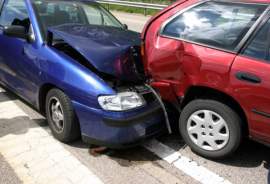
A Guide to Car Insurance Companies and Policies

What is Car Insurance?
In the United States, all vehicles (cars, trucks and other motorized vehicles) on the road must be properly or properly insured by the owner, driver or someone connected to the car. The primary use associated with car insurance is to provide financial protection against physical and/or bodily injuries sustained from traffic accidents, as well as liability that could arise therefrom.
Car insurance is a fundamental and legal requirement attached to driving in the United States; a car insurance policy will effectively protect the holder against an egregious financial loss in the event of an accident or incident involving the underlying vehicle. In a general sense, a car insurance policy will typically include the following:
Coverage against damages to property, including all parts of the car or damage related to theft; Liability coverage will protect (in regards to reimbursement) the operator and owner of the car if the parties were found at fault for committing or initiating an accident; and Medical Coverage will offer reimbursement or compensation for the cost of treating injuries, rehabilitation and in some cases, lost wages and funeral expenses.
All forms of car insurance policies are offered by car insurance companies; these companies will extend coverage protection to drivers or owners of a vehicle in exchange for a premium. That being said, different policies specify the circumstances under which damages or items are covered. For instance, car insurance companies may offer coverage that protects a vehicle against fire damage, accident damage or theft in an independent fashion.
Car Insurance Companies and what they Evaluate/Offer:
Car insurance companies will typically offer a coverage package that will provide insurance to the following items associated with the vehicle:
Medical payments suffered by the insured party
Repair costs associated with physical damage to the vehicle
Coverage associated with third parties, such as the vehicle itself, people, property damage and bodily injury.
Costs associated with fire and theft
No Fault Auto Insurance—offered in some jurisdictions, this policy or aspect will provide coverage for injuries to individuals riding in the insured vehicle without regard to fault
Depending on the location, the insurance premium offered by car insurance companies will either be mandated by a governing body or determined by the insurance company in accordance to a regulatory framework established by the government. When the premium is not mandated by a governing body, it will typically be derived from the calculations of an actuary based on statistical data.
The premium can fluctuate depending on a number of factors that are said to have an impact on the expected cost of future claims. Such factors may include the characteristics of the vehicle (the top speed of the car for instance), the coverage selected by the insurance applicant (deductible, limit of the policy, covered perils), the profile of the driver (driving history, age, gender) and the usage of the car (predicted annual distance driven).
In summation, car insurance companies will evaluate the likelihood that the perspective policy-holder will get in an accident or violate traffic laws. The higher the risk associated, meaning the driver is more likely to get in an accident, the higher the premium those car insurance companies will charge.



















